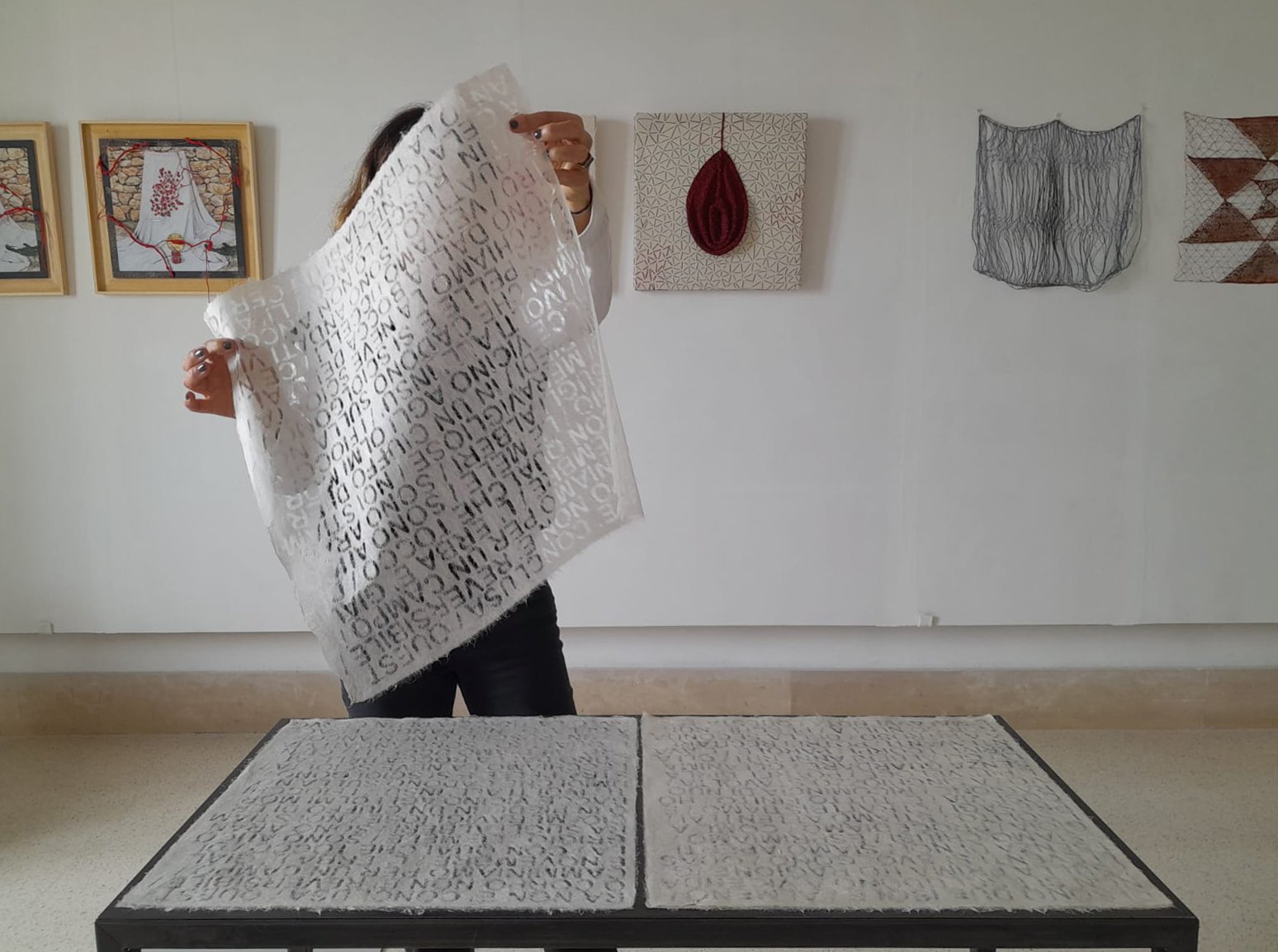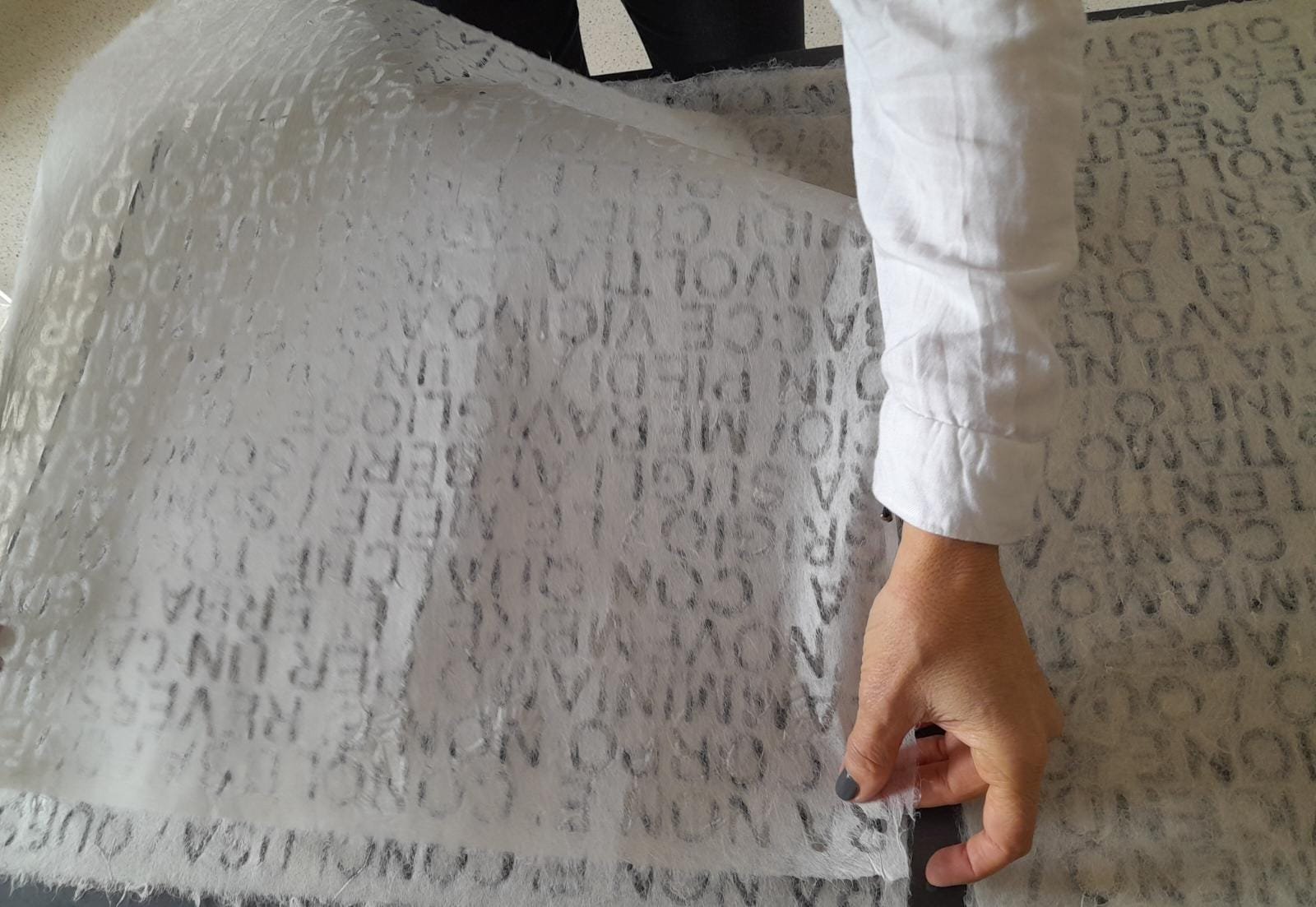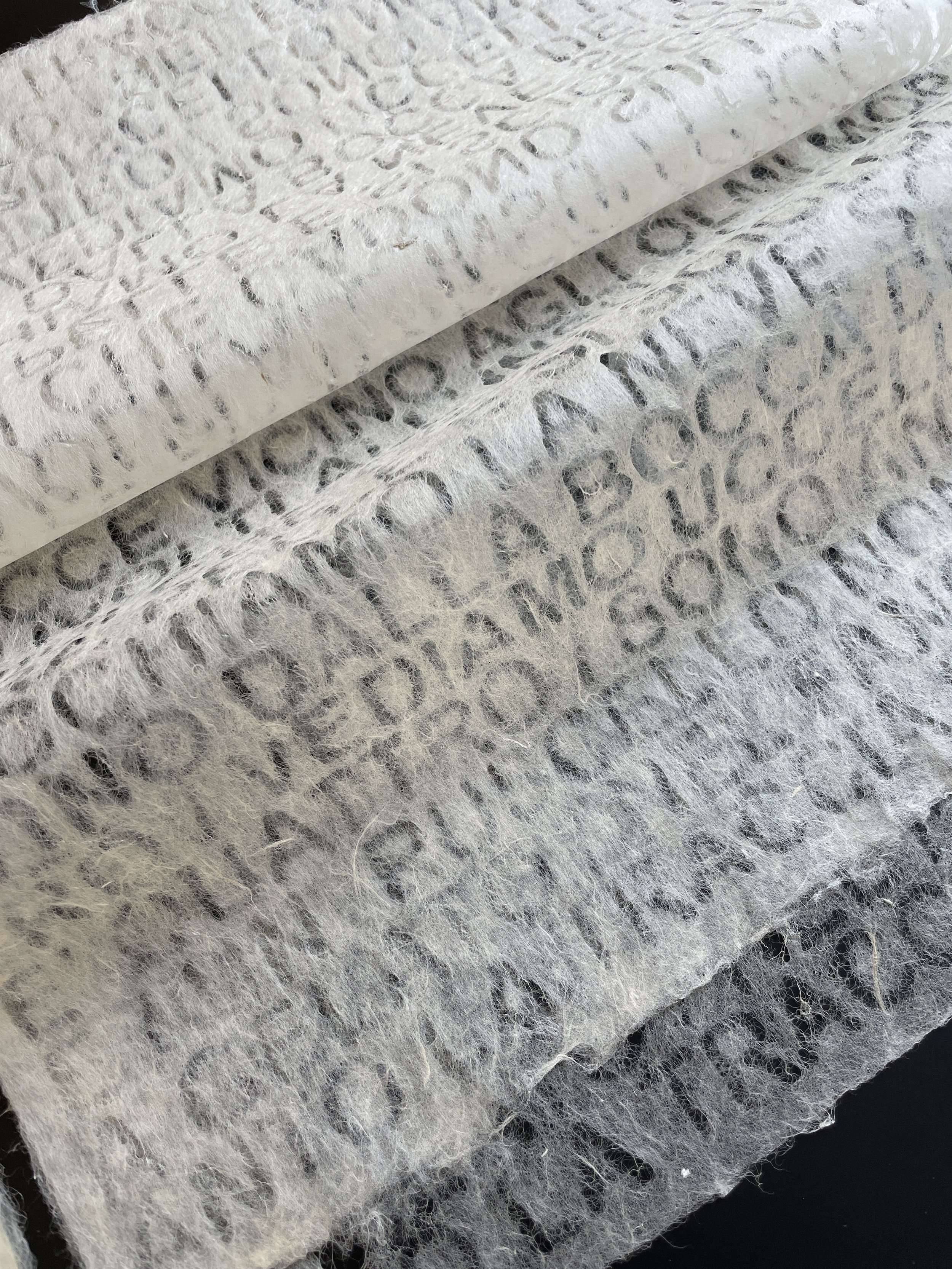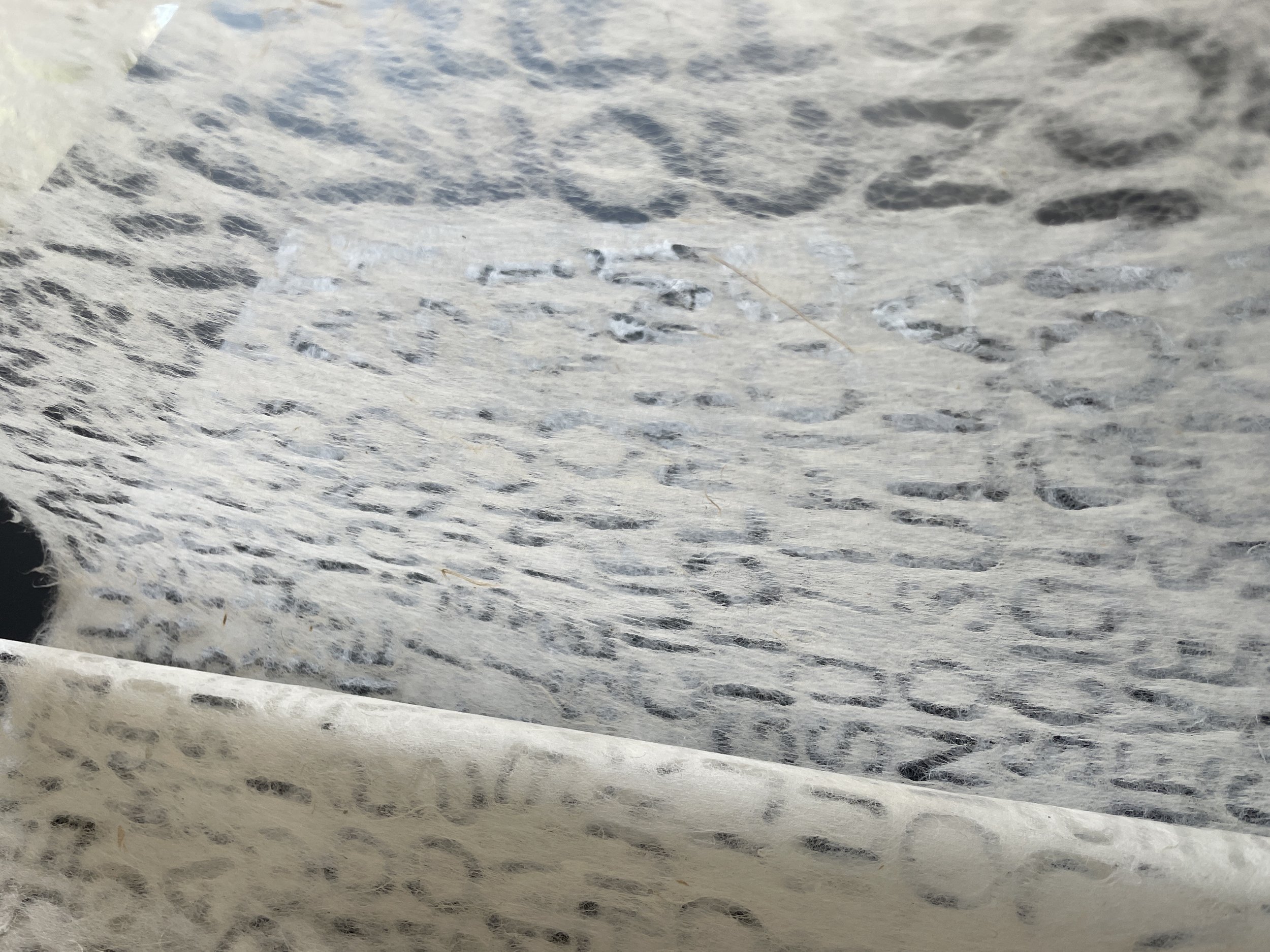Du insuloj
2023
6 fogli con filigrana carta autoprodotta in fibra coreana Hanji
50 x 50 cm (foglio singolo)
Du insuloj
2023
6 sheets with watermark on handmade Korean fiber Hanji paper
50 x 50 cm (single sheet)
Appropriazioni del mito, re-interpretazioni, re-visioni.
Parlare di miti, ciò che resta per sempre. Eppure niente è immobile, tutto è eroso e reinterpretato dal e nel tempo. La Circe stereotipata, ammaliatrice e terribile nelle sue alchmie trasformatrici di uomini, raccontata dalla narrazione di Ulisse, diventa protagonista e voce narrante in Circe/Fango, contro-odissea antieroica di Margaret Atwood. Un'esortazione a liberarsi dalle narrazioni precostituite, per immaginare un'altra isola, un'altra Eea, in cui l'umanità femminile e maschile possa essere indirizzata verso nuovi paesaggi, nuovi ruoli e nuove condivisioni. Sei fogli in carta fatta a mano riportano in filigrana le parole della ventiquattresima parte del poema. II titolo Due isole in Esperanto, fa riferimento alla sua etimologia, che vuol dire sperare.
Myth appropriations, re-interpretations, re-visions.
Talk of myths, that which remains forever. Yet nothing is immovable, everything is eroded and reinterpreted by and in time. The stereotypical Circe, bewitching and terrible in her man-transforming alchemy, told by Ulysses' narrative, becomes the protagonist and narrative voice in “Circe/Fango,” Margaret Atwood's anti-heroic counter-odyssey. An exhortation to break free from preconstituted narratives, to imagine another island, another Eea, where female and male humanity can be directed toward new landscapes, new roles and new sharing. Six sheets of handmade paper watermark the words of the twenty-fourth part of the poem. II title “Two Islands” in Esperanto, refers to its etymology, which means to hope.
< works
< Corpi d’aria
Morte di una stella >
















